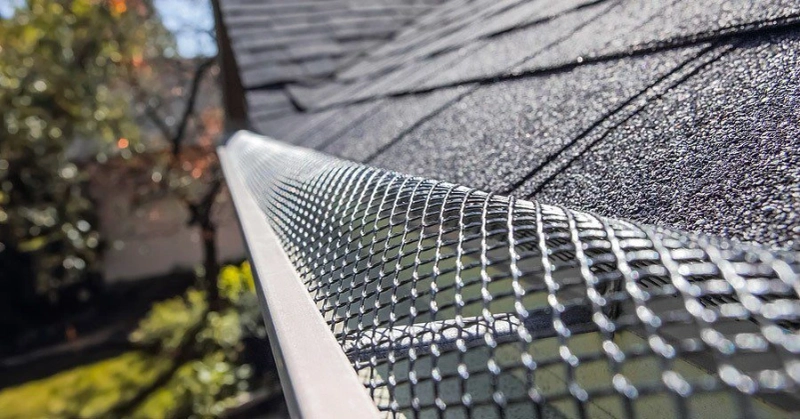Protecting your house from water damage is a significant concern, and gutter guards are a helpful solution. Homeowners often overlook the importance of a sound gutter system until it causes problems such as overflowing water, damaged foundations, or clogged downspouts. Gutters help direct rainwater away from your roof and foundation, but without proper protection, they can quickly become blocked by leaves, debris, and dirt. That's where gutter guards come in, offering a layer of defense that ensures your gutters function efficiently year-round. Understanding the difference between gutter guards and regular gutters can help you make a well-informed decision about what's best for your home.
Understanding Regular Gutters
Standard gutters are open troughs intended to collect and divert rainwater from the roof to the ground via downspouts. In theory, they work well, but in practice, they need constant maintenance. Leaves, branches, bird nests, and other matter can readily accumulate within them, causing overflows and clogs. If not cleaned regularly, this accumulation can cause water to run over the sides, damaging siding, landscaping, and even the foundation of the home.
Another disadvantage of traditional gutters is the risk of rusting, corrosion, and sagging caused by accumulated water or excessive debris. Homeowners tend to clean their gutters several times a year, particularly in autumn and spring. Although regular gutters cost less up front, the regular maintenance and repair bills can soon mount.
What Makes Gutter Guards Different
Gutter guards are specific covers or mesh screens placed over traditional gutters to prevent debris from entering while allowing water to flow freely. They exist in various forms, mesh, foam, reverse curve, and brush-style guards, each with its own merits. The most significant benefit of gutter guards is that they minimize the frequency of cleaning. By preventing leaves, pine needles, and dirt from entering, they avoid clogging and provide steady water flow, even during intense rainfall.
Aside from minimizing maintenance, gutter guards also increase the lifespan of your gutter system. Since they prevent debris from accumulating and standing water from remaining stagnant, they reduce the risk of rust and corrosion. They also keep pests away, as small insects and animals are no longer able to nest in your gutters.
Gutter Guards vs. Regular Gutters: Which Is Right for You?
When deciding between gutter guards and standard gutters, consider the environment around your home, your budget, and your maintenance preferences. If your yard has many trees around it, gutter guards will pay for themselves through the hours of cleaning and the money saved on maintenance over the years. They are an investment in convenience and future protection.
Homeowners in low-debris neighborhoods might still fare well with standard gutters, as long as they get them cleaned regularly. But for neighborhoods such as Gutter in Kalispell, where weather and falling debris can clog systems quickly, gutter guards are a smart and effective upgrade. They ensure your gutters function at their best year-round, minimizing overflow and the risk of water damage.
The Long-Term Benefits
The long-term benefit of gutter guard installation far exceeds convenience. By ensuring proper water flow and avoiding damage, they protect your home's foundation, siding, and roofline. Maintenance dollars, repair costs, and associated water damage expenses will also be saved.
Conclusion
In the gutter guards versus regular gutters debate, the right choice depends on your home's environment and maintenance needs. Gutter guards offer superior protection, efficiency, and durability, while regular gutters require more maintenance but offer a lower initial investment. For long-term reliability-seeking homeowners, particularly in environments such as Kalispell, upgrading to gutter guards is a sound investment that protects your home, keeps it clean, and keeps it well-insulated against the elements.



